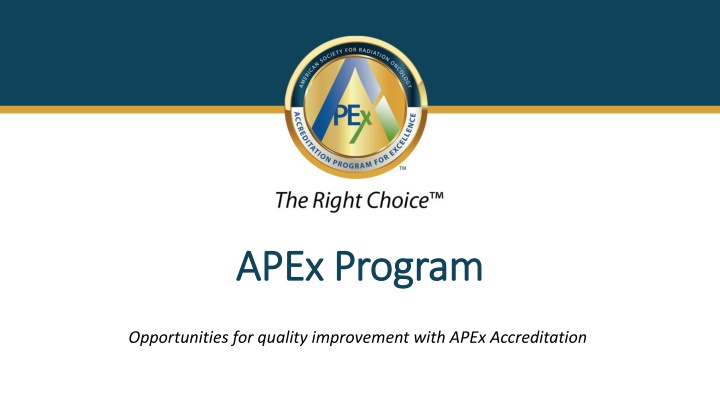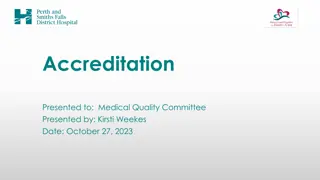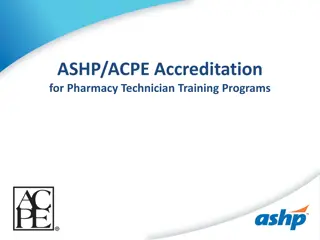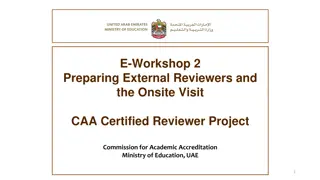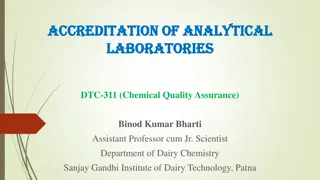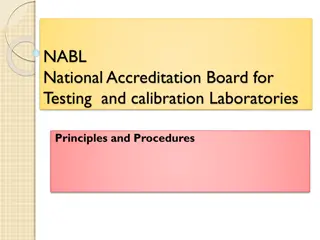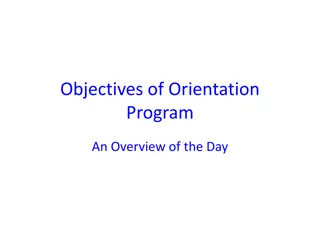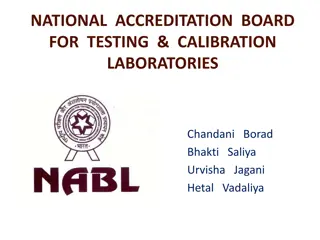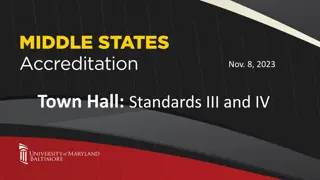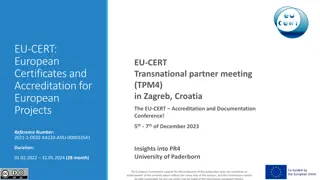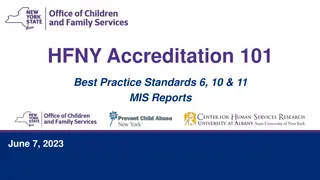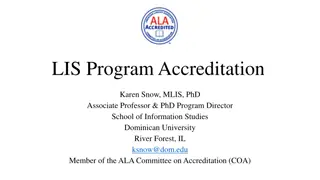Opportunities for Quality Improvement with APEx Accreditation
Explore the benefits of ASTRO's APEx Accreditation Program for quality improvement in radiation oncology practices. Learn about the accreditation process, current practice data review, growth statistics, and the impact on patient care and safety as shared by professionals in the field.
Uploaded on Sep 19, 2024 | 3 Views
Download Presentation

Please find below an Image/Link to download the presentation.
The content on the website is provided AS IS for your information and personal use only. It may not be sold, licensed, or shared on other websites without obtaining consent from the author.If you encounter any issues during the download, it is possible that the publisher has removed the file from their server.
You are allowed to download the files provided on this website for personal or commercial use, subject to the condition that they are used lawfully. All files are the property of their respective owners.
The content on the website is provided AS IS for your information and personal use only. It may not be sold, licensed, or shared on other websites without obtaining consent from the author.
E N D
Presentation Transcript
APEx Program APEx Program Opportunities for quality improvement with APEx Accreditation
Agenda Agenda Introduction Review of current practice data The role of accreditation ASTRO s APEx Accreditation Program for Excellence Discussion
In the current environment of expanding demands on providers and practices, accreditation can serve to align priorities, unify processes and elevate the practice in ways both measurable and immeasurable. - Jean Wright, MD Johns Hopkins University
The APEx journey was a rewarding process and I honestly believe this enhances the safety and quality of care provided to our patients." Raj Varadhan, PhD Minneapolis Radiation Oncology
Review of Current Practice Data Review of Current Practice Data Ideas for discussion Recent safety incidents Current interdisciplinary peer review processes Last review date of internal processes and procedures Discussion of practice safety culture
ASTROs APEx ASTRO s APEx - - Accreditation Program for Excellence Accreditation Program for Excellence APEx Growth Continues 145% increase since COVID 60 # of annual applications 40 20 As of January 2023 0 2018 2019 2020 2021 2022
APEx Process APEx Process Facility Visit Self- Application Facility Visit Determination Assessment Preparations
APEx was developed by radiation oncology professionals for radiation oncology practices. Why APEx? Why APEx? Fastest growing accrediting body for radiation oncology with 100% return rate for practices seeking reaccreditation. Focuses on the entire radiation oncology team and quality improvement, not just appropriateness criteria. Objective reviews with transparent results.
APEx Standards APEx Standards Based on widely accepted consensus documents: ASTRO s Safety is No Accident: A Framework for Quality Radiation Oncology and Care AAPM Task Group Reports Federal requirements (HHS, NRC, CMS) Assesses all members and aspects of a radiation oncology practice. Interdisciplinary peer review for all disciplines Culture of Safety Emergency preparedness Nationally recognized equipment QA standards Patient-centric (education, consent, feedback)
Practice Size (Number of facilities) Practice Type Academic/University 19% Main 3 or more 23% Main only 51% Government 13% Main +2 9% Private/Community 68% Main +1 17% Current APEx Practice Statistics Current APEx Practice Statistics As of January 202
APEx Accreditation benefits APEx Accreditation benefits UPDATING PROCESS TO INCLUDE DOCUMENTATION OF POSITIVE AND PERTINENT NEGATIVE RESULTS - MEANS NEVER ASSUMING. UPDATING OVERALL WORKFLOWS TO INCREASE SAFETY STOP POINTS, WHICH CAN LEAD TO SAFER PRACTICE. IMPLEMENTATION OF PEER REVIEW FOR ALL PROFESSIONS.
Multi Multi- -facility benefits facility benefits APEx makes it easy to align practices under one standard. Ability to add additional satellites during accreditation cycle and confirm process alignment.
Self Self- -Assessment Assessment Internal review conducted by your practice. Consists a review of medical records and practice policy and procedure documents. Feedback reports help identify areas for process and quality improvement before the facility visit.
Surveyors review each facility and interview key personnel. Conducted virtual or in-person Main and satellite(s) conducted on the same day. How Is the How Is the Facility Visit Facility Visit Conducted? Conducted? Surveyors are there to gather objective findings. Determinations are not given during the facility visit.
APEx Determinations APEx Determinations Practice Determinations The Practice Accreditation Subcommittee: A multidisciplinary group representing the entire radiation oncology team. All members are active APEx Surveyors. Provisional 21% Denied 1% Determinations are based on blinded determination reports. Full 78%
Application Process Application Process
How Long Does It Take? How Long Does It Take? Practice Driven ASTRO Driven Month 1 Month 3 Month 4 Month 6 Month 7 Month 8 Month 9 Month 5 Month 2 Application and Payment Send Legal Agreements for Review Self-Assessment: Document Uploads Document Upload Review Self-Assessment: Medical Records Review Self-Assessment: Interview Preparation Facility Visit Preparation Determination
How Much Does APEx Cost? How Much Does APEx Cost? ASTRO offers two payment options: Full Partial Application Fees Type of Fee Main Facility Qualifying Satellite Extra Distance Fee 3-year $9,500 $3,000 4-year $13,000 $4,000 ASTRO accepts: Check Credit card Wire transfers. $3,000
Why Select APEx Accreditation? Why Select APEx Accreditation? Provides feedback before the facility visit. Focused on quality improvement not physician peer review. Promotes teamwork within the ROP. Objective review. Flexibility to meet the needs of your practice: payment options, 3- or 4-year accreditation cycle, and mid-cycle satellite additions. Accredited by ASTRO.
